gunboat diplomacy
description: pursuit of foreign policy objectives with the aid of conspicuous displays of naval power
66 results
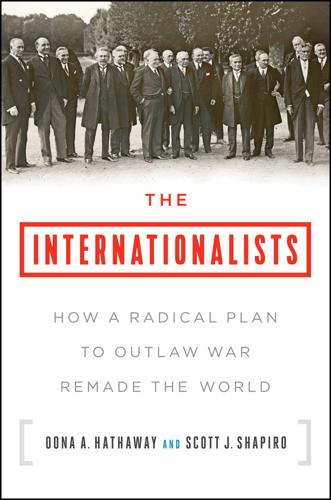
The Internationalists: How a Radical Plan to Outlaw War Remade the World
by
Oona A. Hathaway
and
Scott J. Shapiro
Published 11 Sep 2017
That New World Order, the one in which we now live, is a photo negative of the old one. The Old World Order had rules governing conquest, criminal liability, gunboat diplomacy, and neutrality. The New World Order has rules for all these, too, except they are precisely the opposite. In the New World Order, aggressive wars are illegal. And because aggressive wars are illegal, states no longer have the right to conquer other states; waging an aggressive war is a grave crime; gunboat diplomacy is no longer legitimate; and economic sanctions are not only legal, but the standard way in which international law is enforced. The New World Order is not simply the law.
…
Though gunboats were often used to coerce agreements from weaker states—the Dutch Republic established its empire in the seventeenth century by using warships of the Dutch East India Company to extract exclusive trading agreements from East Indian potentates—ground forces were used as well.96 Thus, King Stanislaw August and the Polish legislature (known as the Sejm) agreed in 1773 to cede 30 percent of Polish territory and half of its population to Austria, Prussia, and Russia when these states threatened war otherwise.97 As the historian of Poland Norman Davies described the macabre act of self-mutilation, “the victim not only gave his assent for the operation; he was persuaded to wield the knife himself.”98 Though the term “gunboat diplomacy” is often used whenever one state makes a military threat against another state, we use the term more narrowly to refer to its use or threat of violence to negotiate agreements: The more powerful state threatens to unleash its military on the weaker unless it agrees to unfavorable terms. As distinct from contracts in domestic settings that are undermined by coercion, treaties in the Old World Order signed with menacing gunboats in the harbor, or troops amassed on the border, were legally valid.99 The Old World Order accepted the legitimacy of gunboat diplomacy because it accepted the legitimacy of war.
…
Faced with starvation, the Sioux surrendered and signed a treaty ceding the Black Hills to the United States.95 Under the rules of the Old World Order, agreements such as these were fully enforceable. An agreement between sovereigns made under duress was still an agreement—and violating such an agreement was a just cause for war. In the Old World Order, states were empowered to practice what today we call by the derogatory term “gunboat diplomacy.” Though gunboats were often used to coerce agreements from weaker states—the Dutch Republic established its empire in the seventeenth century by using warships of the Dutch East India Company to extract exclusive trading agreements from East Indian potentates—ground forces were used as well.96 Thus, King Stanislaw August and the Polish legislature (known as the Sejm) agreed in 1773 to cede 30 percent of Polish territory and half of its population to Austria, Prussia, and Russia when these states threatened war otherwise.97 As the historian of Poland Norman Davies described the macabre act of self-mutilation, “the victim not only gave his assent for the operation; he was persuaded to wield the knife himself.”98 Though the term “gunboat diplomacy” is often used whenever one state makes a military threat against another state, we use the term more narrowly to refer to its use or threat of violence to negotiate agreements: The more powerful state threatens to unleash its military on the weaker unless it agrees to unfavorable terms.
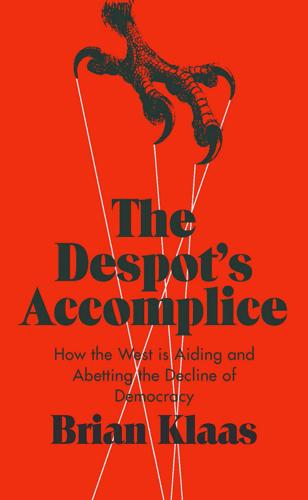
The Despot's Accomplice: How the West Is Aiding and Abetting the Decline of Democracy
by
Brian Klaas
Published 15 Mar 2017
There wasn’t much of an appetite in Washington for a full-blown US invasion. It would invite serious risks, and given the immense and 115 THE DESPOT’S ACCOMPLICE unpopular 1993 Black Hawk Down debacle in Mogadishu, Clinton’s administration was eager to avoid another foreign policy disaster—if it could be avoided. â•… In a late-twentieth-century version of gunboat diplomacy, Clinton deployed massive warships and parked them just off Haiti’s shoreline. The maneuver was aptly titled “Operation Uphold Democracy” for maximum propaganda effect. As talk of an American invasion permeated discussions in Port-au-Prince, Haiti also started rattling its sabers—admittedly much stranger sabers than the American gunboats: “We will fight and face the invader.
…
The fact € 117 THE DESPOT’S ACCOMPLICE that they did not effectively seize it does not negate the fact that the attempt was worthwhile. â•… The model of intervention in Haiti was nonetheless problematic, for several reasons. The financial incentives were likely too generous given Cédras’ crimes; the United States’ application of unilateral gunboat diplomacy set a dangerous precedent of introducing geopolitical considerations into such interventions (though it was at least bolstered by the veneer of multilateralism under a UN Security Council resolution); and the long history of American meddling in Haiti’s affairs undermines the claim that this was a purely principled foreign policy operation.
…
This uncertainty is an advantage, because it would mean that despots would still fear the consequences of their actions, but diplomats would nonetheless retain the flexibility to prioritize stability for smaller and medium-sized fish in the international pond of counterfeit democrats. Just as with the Cédras deal, the security and safety guarantee should be predicated on a peaceful transfer of power with the aim of holding quick but credible elections. â•… Admittedly, the Haiti intervention was made possible, at least in part, by American gunboat diplomacy. It was a lot easier for Jimmy Carter and Colin Powell to play “good cop/bad cop” with warships virtually casting shadows on the Haitian coastline. The calculus for Cédras came into focus: take the golden parachute, or try your luck with a lead one. If this is to become the modus operandi for future guarantees of exile for embattled rulers who have overstayed their welcome, then the mechanism for using the threat of force should be multilateral, consensus-based, and granted the narrowest possible intervention to get the job done.
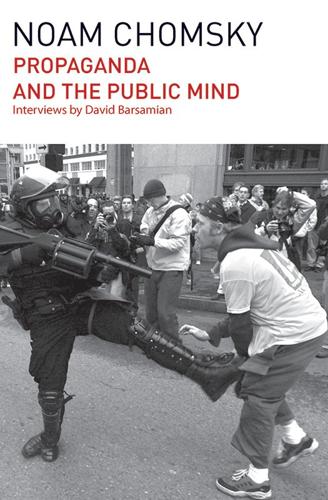
Propaganda and the Public Mind
by
Noam Chomsky
and
David Barsamian
Published 31 Mar 2015
One of the reasons why the U.S. is may be hanging back—apart from the fact that Indonesia is a loyal, rich client and there are plenty of U.S. corporations operating there and they don’t care one way or another about the Timorese—there’s another problem looming right now. It doesn’t get reported much. A couple of days ago, the Chinese president, Jiang Zemin, was in Thailand. He made a very strong speech which got a lot of attention in Southeast Asia in which he condemned U.S. “gunboat diplomacy” and economic neocolonialism.6 He talked, not in detail, about security arrangements between China and ASEAN, the Association of Southeast Asian Nations. According to the limited press coverage from Southeast Asia, the Thai elites welcomed this because they are glad to see a counterforce to the U.S., which they and much of the world are very much afraid of now.
…
He is not a nice person, incidentally, and comes from an awful political party, but that’s a separate issue. If you look at the debate over nuclear testing in India, these were the issues that were raised. India was extremely critical of the Balkans war, in part for these reasons. Throughout most of the world, outside of Europe and the English-speaking countries, the war was just regarded as gunboat diplomacy. Here are the imperial powers again beating up somebody who’s in the way. Pakistan today is routinely described as bankrupt and corrupt. In October there was a military coup that brought General Pervez Musharraf to power, overthrowing Nawaz Sharif. Pakistan was very useful to the U.S. during the Cold War in the Middle East, as well as South Asia.
…
See also Noam Chomsky, Rogue States: The Rule of Force in World Affairs (Cambridge: South End Press, 2000), pp. 51-61, and Noam Chomsky, A New Generation Draws the Line: Kosovo, East Timor, and the Standards of the West (New York: Verso, 2001), pp. 48-93. 4. Seth Mydans, “The Timor Enigma,” New York Times, September 8, 1999, p. A12. 5. Daniel Patrick Moynihan, with Suzanne Weaver, A Dangerous Place (Boston: Little, Brown, 1978), p. 247. 6. Ted Bardacke and James Kynge, “China Lashes Out at US ‘Gunboat Diplomacy,’” Financial Times, September 4, 1999, p. 4. Chapter 5 1. Andrew Simms, “Unctad Offers Way Forward for Talks on World Trade,” Guardian Weekly (Manchester), February 23, 2000, p. 12. 2. Susan Strange, Mad Money: When Markets Outgrow Governments (Ann Arbor: University of Michigan Press, 1998), p. 127. 3.
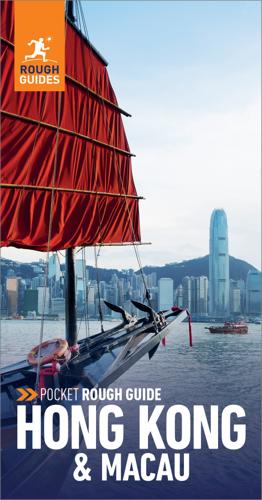
Pocket Rough Guide Hong Kong & Macau
by
Rough Guides
Published 18 Jul 2024
So, the British began importing cheap opium from their holdings in India, flooding the Chinese market and causing a surge in addiction and demand. In 1839, alarmed at the Imperial court’s rapidly-draining reserves of silver, Chinese officials stepped in to stop the trade – and Britain declared war to keep it going. After two years of British warships pounding Chinese ports with “gunboat diplomacy”, in 1842 the Qing court was forced to sign the Treaty of Nanking, which – amongst other things – ceded Hong Kong island to Britain “in perpetuity”. Inland from the International Finance Centre are the three pastel-pink, marble and glass towers of Hong Kong’s Stock Exchange, sprouting from Swiss architect Remo Riva’s Exchange Square.
…
Britain takes Hong Kong Island in 1841, and the Treaty of Nanking in 1842 concludes the war by allowing the British to establish trading enclaves in Chinese cities. 1846–47 Taipa is annexed by Macau’s Portuguese governor, who also legalizes gambling to increase revenue. 1856–60 The Second Opium War. British resume gunboat diplomacy to demand greater trading rights in China, and are ceded the Kowloon Peninsula at the Convention of Peking. 1860–80 Uprisings in China against the failing Qing Dynasty see 150,000 refugees fleeing into Hong Kong. The settlement expands to become a financial and trading centre, with its focus along the north shore of Hong Kong Island. 1887 China cedes sovereignty of Macau to Portugal. 1898 The New Territories are leased to Britain for 99 years. 1907 Britain ends the Chinese opium trade. 1920–41 Shanghai’s rising importance to international trade with China sees Hong Kong’s fortunes wobble; from 1933, refugees pour into Hong Kong and Macau as Japan invades China. 1941–45 The Japanese occupy Hong Kong for most of World War II; following Japanese surrender, the British resume control. 1949–1960s The Communists seize power in mainland China and more refugees flood in.
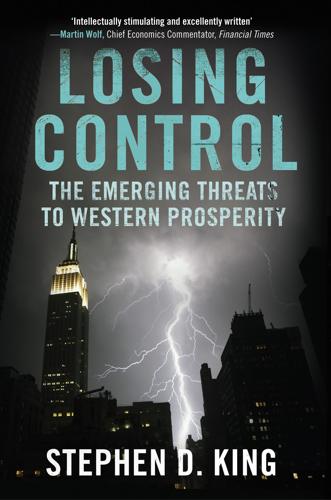
Losing Control: The Emerging Threats to Western Prosperity
by
Stephen D. King
Published 14 Jun 2010
There is, however, no such forum within which the perils and pitfalls of global capital markets can be acted upon, even though the massive growth of capital markets is surely the defining feature of modern-day globalization. Until recently, the closest we had was the International Monetary Fund (IMF). In the world of capital markets, though, the IMF has little information, no teeth and, across the emerging world, little trust. Nor can it offer the gunboat diplomacy that, in the nineteenth century, proved a useful way of enforcing – or imposing – property rights. As a result, we have a system of capital markets that has proved to be beyond regulation and supervision. Moreover, it is a system in which powerful nation states, not private investors, are beginning to play the dominant role.
…
According to estimates from the OECD, public spending on pensions and healthcare within the G7 nations will rise by around 7 per cent of GDP between 2010 and 2050.14 Unless tax revenues also rise – difficult if the workers being relied upon to produce the necessary goods and services live abroad – the likely response will be expenditure cutbacks in other areas. Gunboat diplomacy might have worked well for Victorian and Edwardian Britain but, with limited resources, it will be a fading option for the developed world in the twenty-first century. The first option is, in my view, much better. US history, both in the nineteenth century and in the late twentieth century, shows that it is possible to incorporate into society all colours and creeds.
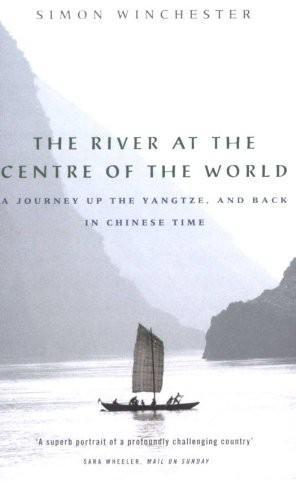
The River at the Centre of the World
by
Simon Winchester
Published 1 Jan 1996
The Chinese government had its own China Merchants Steam Navigation Company (whose vernacular name was translated in more submissive language as The Bureau of Merchants Invited to Operate Steamships), and there were Japanese, Italian and French companies operating too. And all had their naval gunboats steaming upriver and down, patrolling, keeping the trade lanes open, protecting citizens and compradors alike from the strange irrationalities of Chinese warlords. It was the collision, in August 1926, of these two aspects of Chinese life – warlords and gunboat diplomacy – that came to be called the Wahnsien Incident. Sichuan in those days was controlled by a particularly vicious, clever, cunning, and iron-hard local warlord named Yang Sen.* He was almost uncontrollably powerful in the Upper Yangtze valley, and he had thousands of troops loyal to him. But he needed to move them, sometimes at short notice, along the river – and the problem arose that although the French and Japanese, typically, would allow warlord soldiers to travel on their cargo vessels, the Americans and the British would not.
…
At the end of the affair seven British sailors were dead and an uncountable number of Chinese – by some accounts, three thousand. The two Swires ships were badly damaged and on fire, and one of the officers was drowned. The warlord General Yang had scuttled off into the cypress woods, to fight again. And the whole sorry issue of gunboat diplomacy was out in the open. The western press fulminated. The new China will not tolerate such intrusions of Western power into the heart of the country,’ wrote the Nation. The New York World agreed: gunboats were an anomaly, probably more dangerous as an irritant to the Chinese than a force for good policing.
…
(Dai Qing), 239, 411 Changchup Dolma, 383–5 Changsha, 217, 222 Chatwin, Bruce, 338, 338–9, 341, 342 Chaulmoogra oil, 333 Chefoo Convention, 266, 268 Cheng Ho, 142 Chengdu, 295, 297, 323, 353, 370, 373, 375, 381, 394 Chenqian, 41 Chiang Kai-shek, 130, 139, 156, 172, 197, 215, 244n, 281, 287 Chiang Mai, 327 Chin-huai stream, 139–40 China Daily, 164 China Geographic Research Institute, 351 China Merchants Steam Navigation Company, 284 China Navigation Company (CN Co.), 63, 284, 285, 412 China Proper, 304, 375 China Quarterly, The, 85n China Sea Pilot, 36, 410 China Yangtze River Scientific Observation Drifting Expedition, 358 Chinese Pale, 304, 307 Chittagong, 94 Chola-shan mountains, 386 Chongming Dao, 43, 46 Chongqing, 19, 26, 130, 226, 234, 242–3, 266–9, 280–82, 286–7, 336, 366 Chortens, 380, 385 Chou En-lai, 215 Ciochon, Russell, 293 Cleese, John, 342 Clinton, Bill, 31 Clipper ships, 175, 205 Cloud Mountain, 4–5,264, 359, 360–62, 363, 364, 366, 367 Coates, Austin, 9 Cockchafer, HMS, 285 Cold War, 109, 203 Come-to-Me Rock, 271 Communications satellite, 309–10 Communist Party Central Committee, 188 Communist takeover (1949), 87, 106 Concord, HMS, 111 Confucianists, 224 Cormorants, 283 Cornwallis, HMS, 142, 177 Creation myths, 362 Crush-tear-curl (CTC) process, 181 Cultural Revolution, 86, 141, 189, 190–91, 201, 231, 232, 255, 257, 329, 339–40, 381, 383, 390, 391 Currency exchange scam, 247–8 Cuttlefish boats, 42 Da Fu, 325 Dadu River, 378 Dai Qing, 238–40, 241, 411 Dalai Lama, 279, 322, 325, 377, 389, 398, 401 Dali, 327, 333 Dalian, 28 Dam building, 223–9, 235, 253–7, 261–2, 316–20 Dam Qu stream, 322, 350–52, 404 Daoguang, Emperor, 138, 143 Datong, 124, 159 David, Père, 337, 380 Daxue Mountains, 370 Daya Bay, 250 Dead bodies, 90–91, 193–4, 321–2 Dêgê, 355, 373, 374, 377, 381, 387–91 Democratic Youth Party, 245 Deng Xiaoping, 236, 241, 297 Dharmsala, India, 401 Dikes, 157–9 Din-Din Café, 331 Dismissal of Hai Rui from Office, The, 190 Distilleries, 297–8 Dolphins, 101–4, 246 Domand Gunpa lamasery, 385 Dong Jiao, 41 Dong Zhi, 276 Dongting Lake, 157 Dove tree, 337, 361 Dragon Hill Cave, 291–3 Dragon Horse Stream, 275 Dragon's Descendant (boat), 353 Drepung Monastery, 398 Du, Mrs, 276–8 Earthquakes, 244 East China Sea, 2, 20, 33, 35, 38, 150, 238, 343, 391 East India Company, 70–71, 175–6 East Is Red Number One, The (ship), 198–9 Eder Dam, 244 Eighth Battalion of the Wuchang Engineers, 209 Electrical-power generators, 225, 227, 228, 235–6, 253 Elizabeth II, Queen, 91, 198 Elliot, Charles, 143 Ena, Ms, 322 Endangered Species Act, 241 Environmentalism, 239, 241, 246, 253 Epic Undertaking, An, 219, 260 Erhai Lake, 364, 365 Ertan Dam, 316–18 Estuary, 37–43 Expeditions, 352–8 Exports, 214 Expressways, 86, 216 Extraterritoriality, 106 Face, loss of, 311 Fairy Flats, 49n Fall of Shanghai, The (Barber), 412 Ferryboats, 116, 124, 392 First Opium War, 29, 57, 143 Fishermen, 101–3 Five Cereals Liquid, 297 Flatwater, 344 Flood control, 227, 237, 364 Flood Relief Commission, 156, 158 Floods, 149–58, 163–5, 192, 222–3 Flower boats, 139–40 Flying Tigers, 281, 339 Foochow, 72, 96 Forbidden City, 209 Foreign debt, 251 Fossils, 291–3 Franchises, 212–13 Franklin Research and Development Corporation, 252 Freedom of Information Act, 31–2 Freeways, 86, 216 Frozen yogurt, 211 Fu-hsi, Emperor, 363 Fuling, 234 Fushan, 94 Gambling, 73 Gang of Four, 191n, 232 Garway's Coffee House, 173, 174 Gas stations, 382–3 Ge Guo-hong, 81–3 Gelandandong Glacier, 404, 405 Gelandandong, Mount, 343, 351, 352, 367, 374, 405 Geology, 367 Gezhouba Dam, 254–7 Gill, William, 264 Glen Canyon Dam, 236 Glimpses of the Yangtze Gorges (Plant), 411 Gold mines, 385–6 Golden Road, 325 Golmud, 373, 375, 404 Good Earth, The (Buck), 115, 214, 294 Gotô, Baron, 129, 131 Goullart, Peter, 334–5 Grand Canal, 95, 100, 101, 113–14 Grand Coulee Dam, 236 Granville, Lord, 50, 51 Great Anniversary Swim of 1995, 202 Great Bend at Shigu Town, 20, 25, 264 Great Leap Forward, 102, 125, 187–8, 200, 232, 324 Great Wall of China, 43, 262 Green tea, 181–2 Grover, David, 410 Guangxi province, 327 Guangzhuguo Stream, 351–2, 352 Guanxi (connections), 372, 374, 388 Guichi, 160–62 Guidebooks, 128–9 Guinness Book of Records, The, 258 Guiyang, 239 Gulags, 245 Gulf of Tonkin, 3, 366 Guling, 173, 186–8 Gunboat diplomacy, 284–6 Gyermorong, 376 Hai Rui, 189–90 Hainan Island, 54 Haiphong, Vietnam, 214 Han Chinese, 16, 303, 307, 322, 329, 376, 400 Han Shui River, 214, 217, 237 Handbook for the Guidance of Shipmasters on the Ichang-Chungking Section of the Yangtze River, A (Plant), 270–72 Hangzhou Bay, 40, 47, 130 Hankou, 204–9, 213–14 Hankou Bund, 155, 204 Han Shui River, 203 Hanson, J.
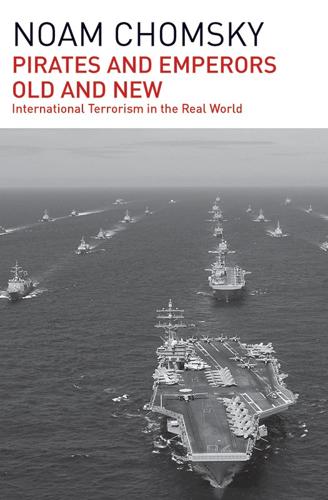
Pirates and Emperors, Old and New
by
Noam Chomsky
Published 7 Apr 2015
Kristol might, however, counter this argument too by invoking a crucial distinction that he has drawn elsewhere in connection with the right of forceful intervention by the United States: “insignificant nations, like insignificant people, can quickly experience delusions of significance,” he explained. And when they do, these delusions must be driven from their minds by force: “In truth, the days of ‘gunboat diplomacy’ are never over . . . Gunboats are as necessary for international order as police cars are for domestic order.” It presumably follows, then, that the U.S. is entitled to use violence against Nicaragua, an insignificant nation, though the USSR lacks this right in the case of Turkey or Denmark.12 The overwhelming endorsement for U.S.
…
The rich documentary record from the State Department, OSCE, the British government, and other Western sources substantially reinforces these conclusions. Perhaps that is why the illuminating record is so consistently ignored in the extensive literature on the topic. Even in the most loyal client-states the bombing was condemned as a reversion to traditional gunboat diplomacy “cloaked in moralistic righteousness” in the traditional fashion (the respected Israeli military analyst Amos Gilboa, by no means an isolated voice).22 Americans are carefully protected from world opinion and critical discussion of such matters, but we do ourselves no favors by keeping to these restrictions.
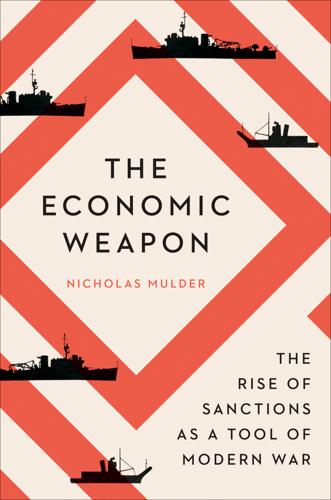
The Economic Weapon
by
Nicholas Mulder
Published 15 Mar 2021
The radicalization of war aims to include political-ideological change was clear in the trajectory of U.S. president Woodrow Wilson. Although sympathetic to Anglo-American naval power, he was initially hesitant about economic pressure because he identified it with a long history of European imperialism and gunboat diplomacy.76 Wilson saw the 1902–1903 Anglo-German pacific blockade of Venezuela as a violent European intrusion into a Western Hemisphere kept peaceful by the Monroe Doctrine.77 Any future peace, he proposed in February 1917, should be founded on four principles: political independence, territorial integrity, economic peace, and arms limitations.
…
French officials were incensed that Germany, as a non-member, dared to ask for the Council to convene.34 Seydoux wrote a note defending the French sanctions in which he argued that “to occupy peacefully a territory, to assign to the payment of the debt of a debtor State the receipts of the customs rights of that State or certain sums due to the recalcitrant nation, are measures that have for long been practiced and consecrated by the custom of states . . . to force recalcitrant States to execute their obligations or their commitments.”35 While Seydoux was right that such measures had been used in preceding decades, this logic blithely extended gunboat diplomacy from the semi-colonial periphery to Europe itself. Such desires to “Ottomanize” Germany were by no means restricted to France, a long-standing rival of German power in Europe. Even small nations, which otherwise had a strong stake in the protection of formal equality among states, were tempted to accept imperial hierarchies in the use of economic pressure when they could secure benefits by doing so.
…
Italy was one of four permanent Council members; contributed expert personnel to the League’s various organs; and possessed an African colonial empire in Libya, Eritrea, and Somaliland.87 It had also acquired control over the Greek-inhabited Dodecanese Islands through the Treaty of Lausanne in 1923 and ruled this archipelago through a governor in a colonial fashion.88 Given this deeply imperial relation to lands inhabited by Greeks, it is not difficult to see why Italians felt entitled to shell and seize Corfu in a display of gunboat diplomacy. Italian elite and public opinion saw the bombardment and occupation of a Greek island as a perfectly proportional response to the injury the country had suffered. The Italians were exploiting the narrow definition of war in the Covenant to avoid triggering Article 16.89 Mussolini also listed past reprisals by Britain and France against Qing Formosa (1885) and Siam (1893), as well as the international blockades of Crete (1897), Venezuela (1902–1903), and Montenegro (1913) as examples of international enforcement that justified his actions.90 Indeed, as the British jurist Frederick Pollock observed during the Corfu crisis, “If Signor Mussolini cared for technical precedents,” then Britain’s own past practice “would be more than enough for him.”91 An American lawyer similarly pointed out the inconsistency in the British position on the Ruhr, where Whitehall opposed sanctions for treaty enforcement even though “England has invoked them many times.”92 Corfu and the Ruhr were both episodes that brought the unpleasant imperial past of economic coercion back into an organization that claimed to have put the savage world of power politics behind it.
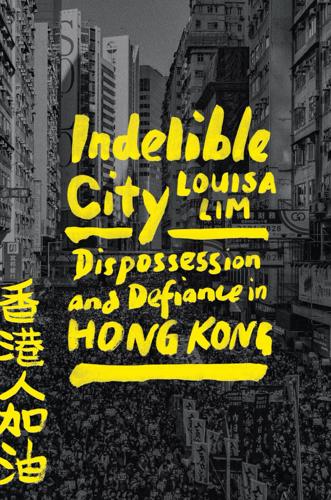
Indelible City: Dispossession and Defiance in Hong Kong
by
Louisa Lim
Published 19 Apr 2022
We absorbed the idea that without empire, Hong Kong would have remained a barren rock. Beijing’s narrative has gone similarly unquestioned by legions of Chinese schoolchildren. This version has Hong Kong as Chinese soil from time immemorial until it was snatched away by imperial aggressors who used gunboat diplomacy to enforce an “unequal treaty” that was never seen as valid by the Qing dynasty. That’s the context underpinning the story I stumbled across in the textbook my son studied at weekend Chinese school in Melbourne. In fact it was the same textbook, developed by the State Council’s Overseas Chinese Affairs Office, that my kids had used when they attended weekend Chinese school in the United States.
…
Historical accounts tend to gloss over Chinese casualties, but an 1847 report to the British Parliament noted that 69 British were killed and 451 wounded in the First Opium War, as compared to 18,000 to 20,000 Chinese deaths. So, right from the start, the two narratives accompanying Hong Kong’s cession were markedly different. For Governor Henry Pottinger, Hong Kong was a moneymaker, a “future Great Emporium of Commerce and Wealth.” But in Beijing, the Nanjing Treaty was the first “unequal treaty” imposed by gunboat diplomacy, and the loss of Hong Kong marked the start of China’s century and a half of humiliation by foreign powers, a matter of national shame that could only be eased with the island’s return to its rightful owner. To this day, Hong Kong’s street names reflect an astonishing sleight of hand whereby early colonial administrators stamped their mark on public space while simultaneously expunging the memory of their extraordinarily unpleasant legacies.
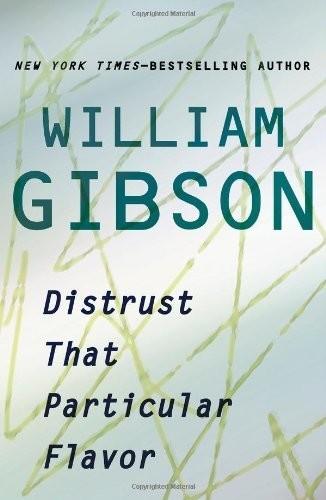
Distrust That Particular Flavor
by
William Gibson
Published 3 Jan 2012
The Japanese, you see, have been repeatedly drop-kicked, ever further down the timeline, by serial national traumata of quite unthinkable weirdness, by a hundred and fifty years of deep, almost constant, change. The twentieth century, for Japan, was like a ride on a rocket sled, with successive bundles of fuel igniting spontaneously, one after another. They have had one strange ride, the Japanese, and we tend to forget that. IN 1854, with Commodore Perry’s second landing, gunboat diplomacy ended two hundred years of self-imposed isolation, a deliberate stretching out of the feudal dream-time. The Japanese knew that America, not to be denied, had come knocking with the future in its hip pocket. This was the quintessential cargo-cult moment for Japan: the arrival of alien tech. The people who ran Japan—the emperor, the lords and ladies of his court, the nobles, and the very wealthy—were entranced.
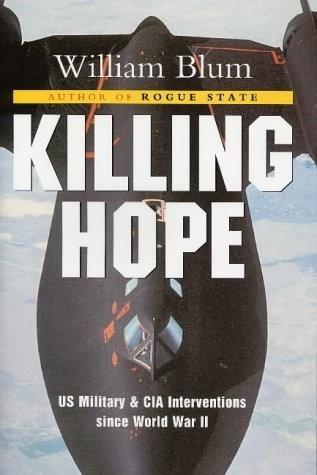
Killing Hope: Us Military and Cia Interventions Since World War 2
by
William Blum
Published 15 Jan 2003
The foregoing slice of American history must be taken into account if one is to make sense of the vagaries of American foreign policy since the end of World War II, specifically the record, as presented in this book, of what the US military and the CIA and other branches of the US government have done to the peoples of the world. In 1918, the barons of American capital needed no reason for their war against communism other than the threat to their wealth and privilege, although their opposition was expressed in terms of moral indignation. During the period between the two world wars, US gunboat diplomacy operated in the Caribbean to make "The American Lake" safe for the fortunes of United Fruit and W.R. Grace & Co., at the same time taking care to warn of "the Bolshevik threat" to all that is decent from the likes of Nicaraguan rebel Augusto Sandino. By the end of the Second World War, every American past the age of 40 had been subjected to some 25 years of anti-communist radiation, the average incubation period needed to produce a malignancy.
…
Dominican Republic 1960-1966 Saving democracy from communism by getting rid of democracy On the night of 30 May 1961, Generalissimo Rafael Trujillo, mass murderer, torturer par excellence, absolute dictator, was shot to death on a highway in the outskirts of the capital city, Ciudad Trujillo. The assassination set off a chain of events over the next five years which featured sustained and remarkably gross intervention into the internal affairs of the Dominican Republic by the United States, the likes of which had not been seen in Latin America since the heyday of American gunboat diplomacy. The United States had been an accomplice in the assassination itself of the man it had helped to climb to power and to endure for some 30 years. It marked one of the rare occasions that the US government acted to overthrow a right-wing despot, albeit anti-commu-nism was still the motivating force.
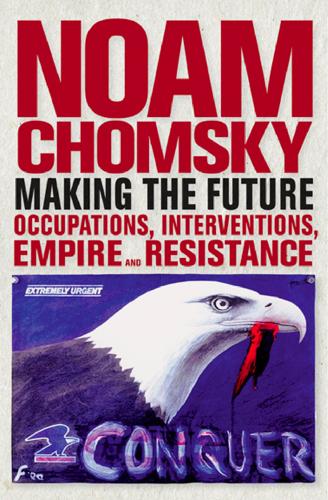
Making the Future: The Unipolar Imperial Moment
by
Noam Chomsky
Published 15 Mar 2010
It was therefore “inevitable and in the highest degree desirable for the good of humanity at large, that the American people should ultimately crowd out the Mexicans” by conquering half of Mexico, and “It was out of the question to expect [Texans] to submit to the mastery of the weaker race.” Using gunboat diplomacy to steal Panama from Colombia to build the canal was also a gift to humanity. WOODROW WILSON Woodrow Wilson is the most honored of the presidential laureates and arguably the worst for Latin America. Wilson’s invasion of Haiti in 1915 killed thousands, restored virtual slavery and left much of the country in ruins.
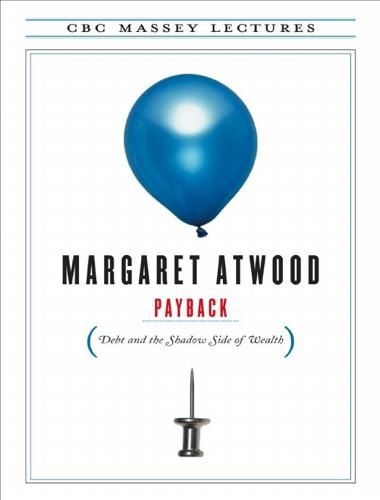
Payback: Debt and the Shadow Side of Wealth
by
Margaret Atwood
Published 15 Mar 2007
Using Jacobs’s two headings, under “taking” would come hunting and fishing and gathering, and looting during a war, and acquisition of territory by force, and robbery, and rape, and forcing people into slavery, and finding pennies on the sidewalk or — as I prefer to do — paper clips. Under “trading” would come barter, and buying and selling, and arranged marriages, and treaties governing market rules, though these latter are sometimes “taking”— gunboat diplomacy, it used to be called. When I first read this book, I became obsessed with identifying transactions that would not fit into this double-headed scheme. At first I thought of gifts: surely a gift is neither taken nor traded. But no: gifts fit under “trading,” because although no set price is attached to a gift and it is bad form as well as bad luck to sell one, a rule of exchange is still at work: for a gift you owe, at the very least, a payment of gratitude; and in addition to that, you owe a gift of your own, if not to the person who gave you the first gift, at least to someone else.

The Cold War
by
Robert Cowley
Published 5 May 1992
Come the peace and she was sent to the Pacific, and in 1949 she found herself attached to the 3rd Frigate Flotilla, an instrument of British imperial power that patrolled the seas in the rough triangle bounded by the western tip of Sumatra, Cape York in northern Australia, and the most northerly point of the Japanese island of Hokkaido. This was half a century ago, when Britain still kept a presence in the Far East: London felt there was much to do in the way of showing the flag and intelligence-gathering, and that gunboat diplomacy—with a fleet of cruisers, destroyers, frigates like the Amethyst, and gunboats themselves—was still the best way to accomplish this. (The phrase “gunboat diplomacy” was in fact specially coined about a century ago for patrols on the Yangtze.) In the case of China, a British naval presence on the Yangtze also enhanced the security of the British embassy in the country's capital, Nanking, three hundred miles upriver from the East China Sea.
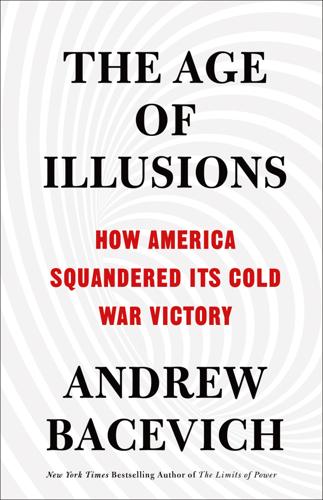
The Age of Illusions: How America Squandered Its Cold War Victory
by
Andrew J. Bacevich
Published 7 Jan 2020
If not quite mentioned in the same breath with Gettysburg or Iwo Jima, it ranked right up there with the Battle of Manila Bay, Commodore Dewey’s storied demolition of Spain’s Pacific Squadron in 1898. Bush had deftly presided over that desert victory, which boosted his approval rating to a stratospheric 89 percent.5 Were that not enough, in the best traditions of U.S. gunboat diplomacy, he also deposed the Panamanian strongman (and former CIA asset) Manuel Noriega in an armed intervention of admirable brevity. All this in a period of slightly more than two years. Even as he was racking up these victories, the president professed to glimpse better things still—a “new world order”—just over the horizon.
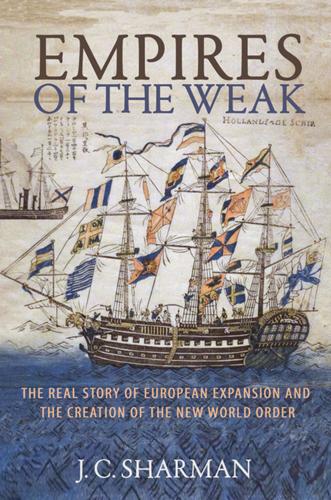
Empires of the Weak: The Real Story of European Expansion and the Creation of the New World Order
by
Jason Sharman
Published 5 Feb 2019
The Fatal History of Portuguese Ceylon: Transition to Dutch Rule, Cambridge: Harvard University Press. Wlodarczyk, Nathalie. 2009. Magic and Warfare: Appearance and Reality in Contemporary African Conflict and Beyond, New York: Palgrave. Wong, J. Y. 2000. “The Limits of Naval Power: British Gunboat Diplomacy in China from the Nemesis to the Amethyst, 1839–1949.” War and Society 18 (2): 93–120. Zarakol, Ayşe. 2010. After Defeat: How the East Learned to Live with the West. Cambridge: Cambridge University Press. INDEX Aceh, 58, 60, 76 Afghanistan, 86, 144, 145 Agoston, Gabor, 104, 105 Aksan, Virginia H., 112 Albuquerque, Afonso de, 57, 60, 118 Alcazarquivir, Battle of (1578), 49, 116 Algeria, 117, 118, 137, 140 Algiers, 115, 117, 118, 120 Alvaro, Kongo king, 50 Ambon, 72 anachronism, 33, 119, 123, 129–30 Andorra, 22 Andrade, Tonio, 59, 78, 124 Angola, 29, 49–51, 67 Araucanians, 44–46, 139 asymmetric warfare, 7, 44, 77, 146 Auma, Alice, 28 Aurangzeb, Mughal emperor, 84–85 Austrian Succession, War of (1740–48), 88 Aztec empire, 40–46, 103, 117, 135, 141 Baghdad, 101 Balkans, 100–106, 108, 110 Banda Islands, 72 Barbarossa brothers, 117 Barbary privateers, 106, 108, 118 Belgian Congo, 135 Belgrade, 108 Bengal, 82, 86–88, 111 Berlin Conference (1884–85), 135 Bijapur, 97 Black, Jeremy, 18, 119–20, 129; on Eurocentrism, 124; on military effectiveness, 23–24; on paradigm-diffusion model, 19, 37, 76 Boer War (1899–1902), 140–41 Bombay, 85 Bosworth, R.
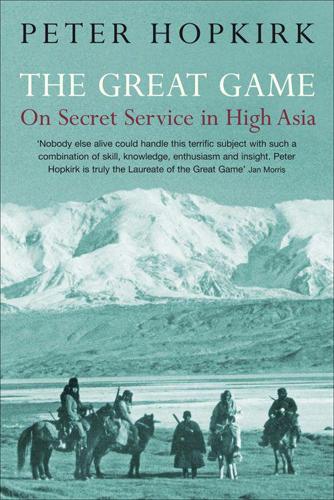
The Great Game: On Secret Service in High Asia
by
Peter Hopkirk
Published 2 Jan 1991
‘We consent to the whole of the demands of the British Government,’ the Shah told him. ‘We will not go to war. Had we known that our coming here might risk the loss of their friendship, we certainly would not have come at all.’ The Persians had climbed down completely, and the Russians had suffered an ignominious defeat. Gunboat diplomacy had triumphed where conventional diplomacy had failed. Reporting the dramatic turn of events to McNeill, Stoddart wrote: ‘I replied that I thanked God that his Majesty thus regarded the true interests of Persia.’ The Shah now gave orders for the siege to be lifted, and for his troops to prepare to return to Teheran.
…
It was decided therefore to send a mixed naval and military force to the Gulf, as had been done to good effect when the Persians had laid siege to Herat seventeen years earlier. At the same time a state of war was proclaimed by the Government of India. A formal declaration of war by Britain would have meant the recall of Parliament, then in recess, and Palmerston, now Prime Minister, knew that this recourse to gunboat diplomacy would prove unpopular, even among his Cabinet, so soon after the costly war with Russia. Indeed, when news of the expedition reached Britain there were anti-war demonstrations in a number of cities there. After a brief but intensive bombardment, Bushire surrendered to the British on December 10, 1856.

Worth Dying For: The Power and Politics of Flags
by
Tim Marshall
Published 21 Sep 2016
It is the only US state flag to incorporate the Union Jack, and so even today the British flag flies over a little piece of the Republic that is the United States of America. Of course not everyone was so magnanimous, especially most of those countries which had not only tasted versions of gunboat diplomacy but also colonialism of somewhat more longevity. Pakistan, India, South Africa, Kenya, Nigeria, Burma and so many others ditched the red, white and blue upon becoming nation states and made their own statements of sovereignty through colour, design and symbolism. And so here we are now, a twenty-first-century Britain, with one of the oldest nation-state flags in the world, which cannot escape its glorious but bloody past, and with the people it represents constantly asking themselves about their modern identity both at home and abroad.
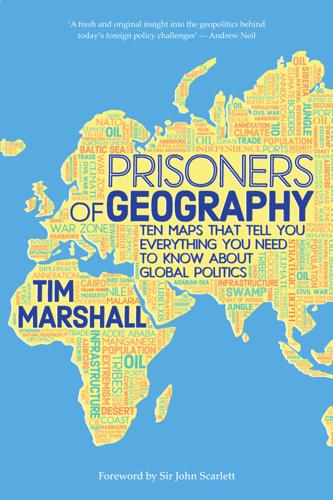
Prisoners of Geography: Ten Maps That Explain Everything About the World (Politics of Place)
by
Tim Marshall
Published 10 Oct 2016
Amazed because they had no idea a Chinese sub could do that without being noticed, angry because they hadn’t noticed and because they regarded the move as provocative, especially as the sub was within torpedo range of the Kitty Hawk itself. They protested, perhaps too much, and the Chinese said: “Oh! What a coincidence, us surfacing in the middle of your battle group that is off our coast, we had no idea.” This was twenty-first-century reverse gunboat diplomacy; whereas the British used to heave a man-of-war off the coast of some minor power to signal intent, the Chinese heaved into view off their own coast with a clear message: “We are now a maritime power, this is our time, and this is our sea.” It has taken four thousand years, but the Chinese are coming to a port—and a shipping lane—near you.
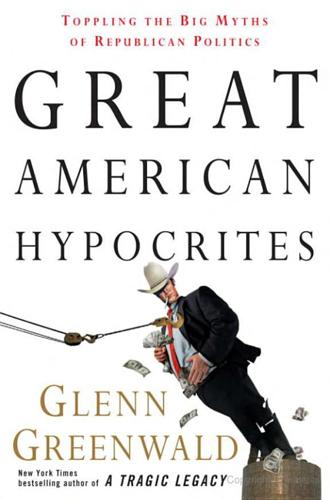
Great American Hypocrites: Toppling the Big Myths of Republican Politics
by
Glenn Greenwald
Published 14 Apr 2008
Nixon told a group of senators on Capitol Hill that General Noriega was the sort of man who should be left to fall of his own weight…. The Latin American reaction, even from those nations that have led the way in branding General Noriega an outlaw, was furious. Mexico, for example, said that “fighting international crimes is no excuse for intervention in a sovereign nation.” Memories of gunboat diplomacy—a phrase used often today in world capitals—run deep…. Unprepared to scale down the objective—getting rid of General Noriega—Mr. Bush finally decided to scale up the means he would authorize. Here we find what have become the depressingly familiar constants in virtually every discussion of American war in our mainstream political discourse—the willingness, even eagerness, to wage war against countries that do not and cannot attack us; reflexive support for any war efforts from America’s highly technocratic “foreign policy experts” and the underlying belief that American invasions of other countries are always justifiable because as a country that is inherently good, our invasions and bombs are well-intentioned.

Infinite Detail
by
Tim Maughan
Published 1 Apr 2019
A quick glance over his shoulder, a paranoid flash of being watched. Maybe he shouldn’t have come alone, maybe he should have brought his security detail with him. But then that would have alerted the LA, and they’d be down here trying to work out what was going on in their usual ham-fisted way. The time for their depressing bureaucracy and gunboat diplomacy would come. Maybe later today, maybe tomorrow. Maybe next month. He had no idea how the increasingly erratic Bristol command worked anymore, but when they did get down here they’d try to fuck everything up for everyone, including him. He glances around again, reaches into his bag, takes out and unrolls the picture the girl had given him as they left the shop, stares at the sad eyes, feels the quality of the paper between finger and thumb.
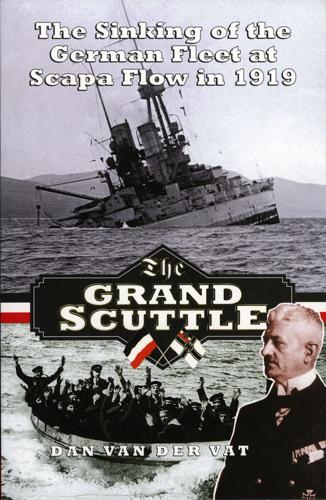
The Grand Scuttle
by
Dan Van der Vat
The navy lobby took full advantage of the burgeoning divergence of the two countries, although their interests still managed to converge from time to time. The British and the Germans worked well together in defence of the principle of imperialism. Both co-operated with other nations in the suppression of the Boxer Rebellion in China in 1901 and in a classic piece of gunboat diplomacy against Venezuela in the following year for failing to pay its debts and maltreating foreign traders. (On both occasions the British felt the Germans used rather more than the minimum necessary force.) Meanwhile the two countries pursued their distinct foreign policies, the new factor being cautious British readiness for formal arrangements, however limited, with other powers.
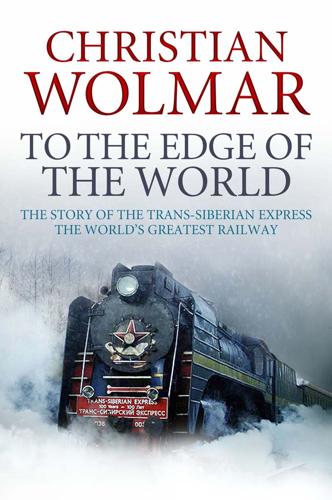
To the Edge of the World: The Story of the Trans-Siberian Express, the World's Greatest Railroad
by
Christian Wolmar
Published 4 Aug 2014
While the Western section of the Siberian railway could be justified in terms of helping emigration from the overpopulated parts of European Russia, and by the exploitation of mineral wealth, building a line through the sparsely populated territory beyond Lake Baikal could be justified only on the basis of strategic considerations. Nothing raises the temperature of the political debate more than supposed threats from other nations. And, in fairness, with Britain at the height of its gunboat-diplomacy pomp, and the major powers in land-grabbing mood across Asia and Africa, there was no shortage of genuine threats. Russia had extended its empire in the east through Muravyev’s efforts and subsequent treaties with China and Japan, imposed largely at the end of the barrel of a gun. But technological developments were also a threat, since improved shipping made it easier for Japan, America and, in particular, Britain – the pre-eminent world power of the time – to see parts of Siberia as potentially ripe for exploitation, especially in the event of a war, given Russia’s weak hold over its distant territory.
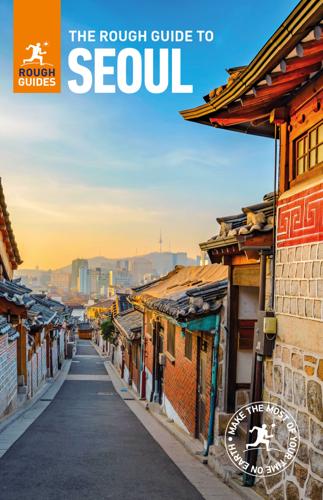
The Rough Guide to Seoul
by
Rough Guides
Published 26 Sep 2018
The French occupied the isle but failed to advance on the mainland in 1866, their battle fought partly as retaliation for the murder of several French missionaries. Five years later, and in the same location, the Americans also attempted – and failed – to prise the country open to trade. The third bout of gunboat diplomacy – this time by the Japanese in 1876 – resulted in the Treaty of Ganghwa, which dragged Korea into the global marketplace on unfair terms. From this point until well after the Korean War, Korea would be a ship largely steered by foreign powers. Through means both political and economic, the Japanese gradually strengthened their position in Korea.
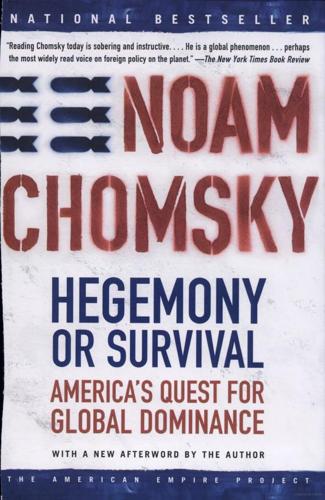
Hegemony or Survival: America's Quest for Global Dominance
by
Noam Chomsky
Published 1 Jan 2003
In the world’s largest democracy—which, after independence, began to recover from the grim effects of centuries of British rule—the Clinton-Blair efforts to shore up NATO’s credibility and make the world safe were also not appreciated, but official and press condemnations in India remained unheard. Even in Israel, the client state par excellence, the pretensions of Clinton-Blair and a host of domestic admirers were ridiculed by leading military and political analysts as a return to old-fashioned “gunboat diplomacy” under the familiar “cloak of moralistic righteousness,” and as a “danger to the world.”24 Another source of information might have been the nonaligned movement, the governments of about 80 percent of the world’s population at the time of their South Summit in April 2000. The meeting was the most important in their history, the first ever at the level of heads of state, who, in addition to issuing a detailed and sophisticated critical analysis of the neoliberal socioeconomic programs called “globalization” by Western ideologues, also firmly rejected “the so-called ‘right’ of humanitarian intervention.”

The Mutant Project: Inside the Global Race to Genetically Modify Humans
by
Eben Kirksey
Published 10 Nov 2020
The Chinese saw themselves as white, at “the center of the civilized world,” with darker-skinned people being “the negative pole of humanity, relegated to the edge of the known world,” according to Frank Dikötter, author of The Discourse of Race in Modern China. The Chinese only came to think of themselves as a distinct “race” in the nineteenth century, when they were forced into the global economy through gunboat diplomacy and unequal treaties. As leaders searched for national unity, they became the Han Chinese—a people who believed that they shared a distinct culture, language, and history, as well as a pure “race.”8 European ideas about race were also shaped by early colonial encounters in the tropics. Legions of white people mysteriously died during their initial forays into Africa and Asia, before there was a clear understanding of microbiology, immunology, and tropical disease.
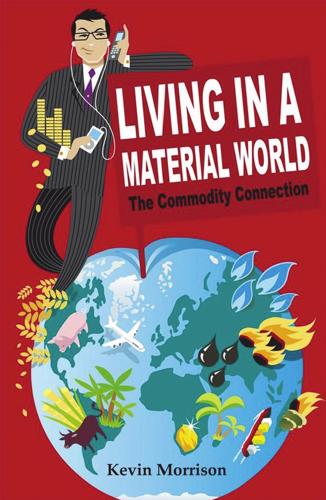
Living in a Material World: The Commodity Connection
by
Kevin Morrison
Published 15 Jul 2008
But there’s another, less well-known, angle to that story. Settling for Corn The real John Smith was put in charge of seeking out local tribes willing to swap corn, fish and game for English copper and glass beads. Smith’s success at negotiation helped feed the young colony, although he was prone to gunboat diplomacy (Deans, 2007). ‘It pleased us God to move Indians to bring us corn ere was halfe ripe to refresh us,’ and in September they ‘brought us great store both of corne and bread ready made,’ Captain John Smith is quoted in Carrier’s 1923 publication. The colonists eventually took a farming lesson from the Indians (Warman, 1988).
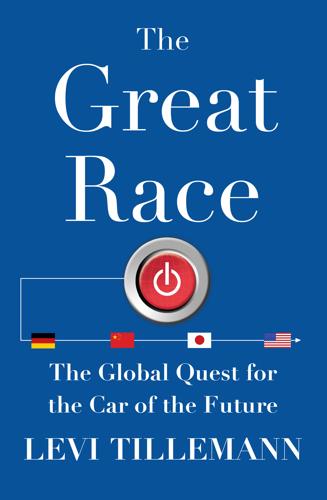
The Great Race: The Global Quest for the Car of the Future
by
Levi Tillemann
Published 20 Jan 2015
Perhaps, they suggested, nationalistic Chinese companies might be holding back these industrial building blocks of their own accord—in retaliation for Japan’s arrest of the Chinese fishing captain. For a host of reasons, this was not believable; for one, a number of the firms trying to export rare earth elements to Japan were foreign-owned. One American analyst called China’s actions “gunboat diplomacy.”17 China’s manipulation of this market was also noted with some consternation abroad. “You used to be able to buy rare earths from China,” said the U.S. Department of Energy’s Pat Davis. “Now you can buy magnets. Next year, who knows?”18 In response, the United States committed $120 million to a new research hub aimed at innovating past this dependence on Chinese supply.
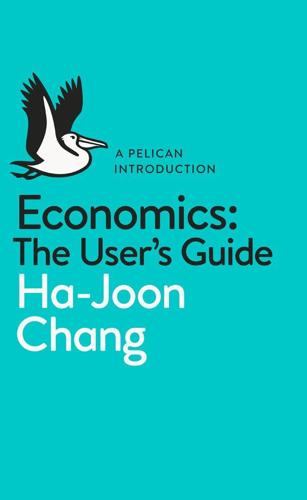
A Pelican Introduction Economics: A User's Guide
by
Ha-Joon Chang
Published 26 May 2014
This was the result of something that you would not normally associate with the word ‘free’ – that is, force, or at least the threat of using it. Colonization was the obvious route to ‘unfree free trade’, but even many countries that were not colonized were also forced to adopt free trade. Through ‘gunboat diplomacy’, they were forced to sign unequal treaties that deprived them of, among other things, tariff autonomy (the right to set their own tariffs).11 They were allowed to use only a low uniform tariff rate (3–5 per cent) – enough to raise some government revenue but not enough for infant industry protection.
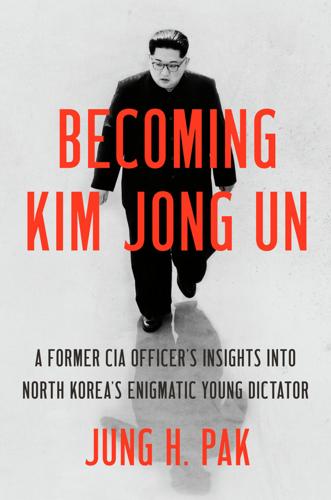
Becoming Kim Jong Un: A Former CIA Officer's Insights Into North Korea's Enigmatic Young Dictator
by
Jung H. Pak
Published 14 Apr 2020
Having experienced repression and witnessed brutality from an early age, Kim raged at the “elite of Korea” who let the nation fall. While other nations went about in mighty warships and rode shiny trains, our feudal leaders rode filthy scrawny donkeys wearing horse-hair hats and wasted several hundred years in a stale state of stupor and suffocating economic stagnation. They kowtowed to foreign gunboat diplomacy and opened up the gate for foreign invasion and exploitation; Korea became an easy prey for the imperialists. But rather than confront the Japanese troops who were determined to root out Korean guerrillas—many of whom perished—Kim and his small group of fighters fled to the Soviet Union in 1940, where he studied under Soviet military officers and rose to the rank of captain in the Red Army’s Eighty-eighth Brigade.

The Glass Half-Empty: Debunking the Myth of Progress in the Twenty-First Century
by
Rodrigo Aguilera
Published 10 Mar 2020
None of this story is found in Roser’s entry for AIDS on the Our World in Data website, the millions of lives needlessly lost by greed are deemed undeserving of even a footnote lest it spoil the uplifting storyline.45 Closely tied to the story of AIDS is the story behind development aid. Depending on who you ask, this either showcases a genuine commitment by the rich world to help the world’s poorest countries (and which often fails due to the latter’s corruption and mismanagement) or simply serves as a band-aid to cover the festering wounds left over by colonialism, gunboat diplomacy, Western-led coups, structural-adjustment, and the other forms of economic dependency that have led to the “Great Divergence” between the West and the rest since the nineteenth century. It certainly appears to be the case that, when left to their own devices, most poor countries tend to do quite well for themselves.
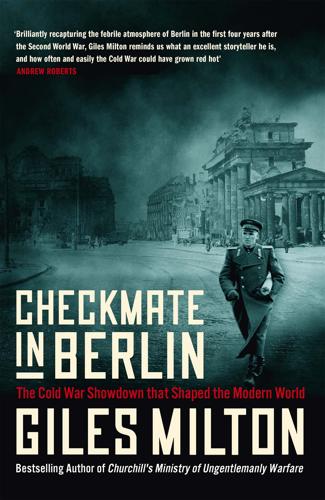
Checkmate in Berlin: The Cold War Showdown That Shaped the Modern World
by
Giles Milton
Published 26 May 2021
‘Only by so doing will we be able to find out what they are thinking about.’62 Marshal Zhukov summoned his American and British allies to another meeting at Soviet military headquarters on Saturday, 7 July. It was an occasion that none of the participants would forget, for the marshal was poised to give the western leaders a masterclass in gunboat diplomacy, with the emphasis on the gunboat. There were few niceties, apart from his addressing his guests as gentlemen, and not much charm. ‘The most perfectly cool, persistent negotiator, with a clear policy that had a broad answer for most problems.’63 Such was the opinion of one British intelligence officer studying Zhukov at close quarters.

The Party: The Secret World of China's Communist Rulers
by
Richard McGregor
Published 8 Jun 2010
‘The Japan that wants to become a “normal country” would do well to take a look, and see how Germany used history as its own mirror.’ China’s grievances against Japan are based on memories of genuine atrocities fuelled by persistent pockets of ugly revisionism in Tokyo. Likewise, the ‘century of humiliation’ seared into the consciousness of young Chinese in history class at schools is founded on real events, of gunboat diplomacy, military invasions, racial discrimination and colonial annexations, that cast little credit on the west. But Chinese lectures to Japan and others about history are difficult to take seriously as long as the Party refuses to allow similar scrutiny by its citizens of the Party’s own record. Holding up the ‘mirror of history’ to the Party is something that is not condoned at home.
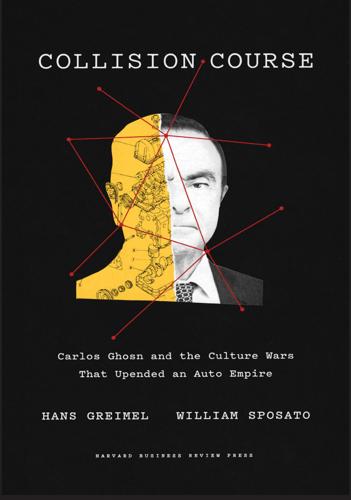
Collision Course: Carlos Ghosn and the Culture Wars That Upended an Auto Empire
by
Hans Gremeil
and
William Sposato
Published 15 Dec 2021
Aside from unwanted cultural mingling, this was meant to stop the spread of Christianity after missionaries had targeted Japan and other Asian countries as ripe areas to find new converts. This mutually advantageous if limited relationship continued for more than 250 years until the rather noisy busting up of the party by American commodore Matthew Perry in 1853. His two expeditions, heavy on gunboat diplomacy, were meant to open up Japan. The Japanese response was straight from their traditional playbook. Outright opposition gave way to delaying tactics meant to put off the inevitable, then grudging acceptance of the new reality and finally a co-opting of the system. The whole transformation only took fifty years, and a similar scenario would play out in much the same way in the aftermath of World War II through the boom economy of the 1960s and 1970s.
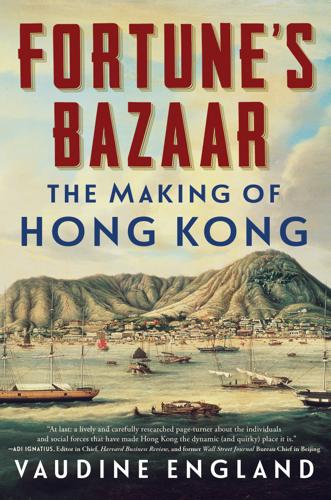
Fortune's Bazaar: the Making of Hong Kong: The Making of Hong Kong
by
Vaudine England
Published 16 May 2023
John’s Cathedral; apparently Caldwell admitted to a wild misspent youth in Singapore until he was thrown out by his family in 1834, fled to China, smuggled opium, womanized, got ill, returned to Singapore, and joined the British Expeditionary Force to return to China, ending up in Hong Kong. Caldwell quickly became indispensable to a government that barely understood its environment, and faced continuing conflict with China and high rates of crime and piracy on the seas in and around Hong Kong. Gunboat diplomacy had broken down China’s barriers against foreign trade but had not allowed much time for anyone in London to think about how to rule a place where most people spoke Chinese and other unknown tongues. Early administrators had not expected Hong Kong to be much more than a depot for foreign shipping but, simply because Hong Kong was not China, it became quickly, wildly popular.
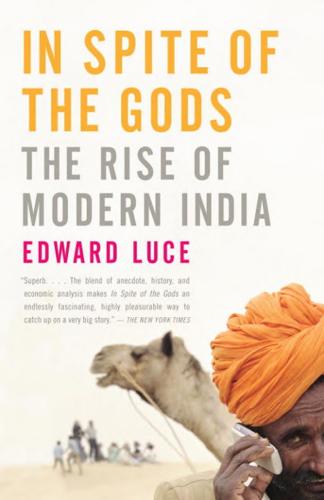
In Spite of the Gods: The Rise of Modern India
by
Edward Luce
Published 23 Aug 2006
When it became clear that India would intervene in the civil war that was raging in East Pakistan, in which the Pakistan army was brutally putting down the Bangladeshi separatist movement, Nixon ordered the nuclear-armed USS Enterprise into the Bay of Bengal to deter India from doing so. To Indira Gandhi, India’s prime minister, who nonetheless did intervene and whose actions helped create Bangladesh, America’s implied threat was redolent of Britain’s nineteenth-century “gunboat diplomacy.” The situation very nearly developed into a much wider international war. Kissinger said publicly that the United States would not come to India’s assistance if China intervened in the conflict, which was a green light for Beijing to do so. Nevertheless, Indians were still shocked in 2005 to see the kind of language that Nixon and Kissinger had used about their country.
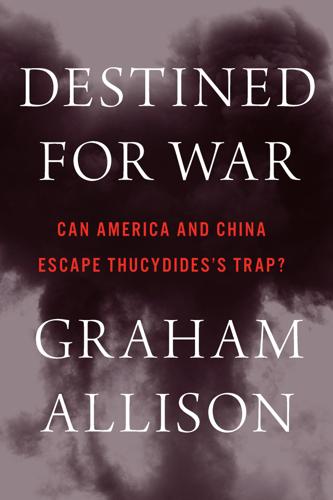
Destined for War: America, China, and Thucydides's Trap
by
Graham Allison
Published 29 May 2017
When the Colombian government rejected his proposal to build a canal through its territory in Panama, TR refused to take no for an answer. As he later remarked, “I took the Isthmus, started the canal, and then left Congress—not to debate the canal, but to debate me.”49 Critics accused him of manufacturing a revolution to seize part of Colombia in a shameful episode of gunboat diplomacy. Roosevelt was unapologetic, declaring that “by far the most important action I took in foreign affairs during the time I was president related to the Panama Canal.”50 Historian David McCullough described this saga as “the great material set piece” of Roosevelt’s presidency. In his definitive account of the canal’s construction, he wrote that for Roosevelt, “first, last, and always, the canal was the vital—the indispensable—path to global destiny for the United States of America.”51 As TR told Congress: “If ever a government could be said to have received a mandate from civilization to effect an object the accomplishment of which was demanded in the interest of mankind, the United States holds that position with regard to the interoceanic canal.”52 When in August 1903 the Colombian Senate unanimously rejected the treaty for the US to build the canal because of concerns over financial terms and sovereignty, Roosevelt seethed at what he saw as a display of “dismal ignorance.”
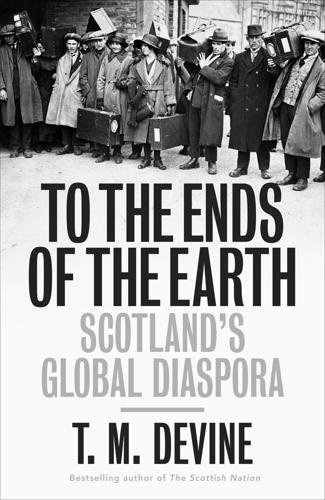
To the Ends of the Earth: Scotland's Global Diaspora, 1750-2010
by
T M Devine
Published 25 Aug 2011
France, the old imperial enemy, was profoundly weakened for over a generation. Yet, to make free trade and the Pax Britannica work, force, or the threat of it, sometimes still had to be employed. Treaties of commerce with foreign powers were indeed preferred to outright territorial annexation, but even they had sometimes to be backed with armed intervention and gunboat diplomacy. The most striking example of the deployment of British military power to protect the interests of trade was in China. An expeditionary force extracted major concessions from the Chinese Empire in 1842 via the Treaty of Nanking. By this action, half a dozen ‘treaty ports’ were created where British merchants were shielded from Chinese jurisdiction, maximum tariffs on goods imported to China were established and the harbour at Hong Kong transferred to the British.
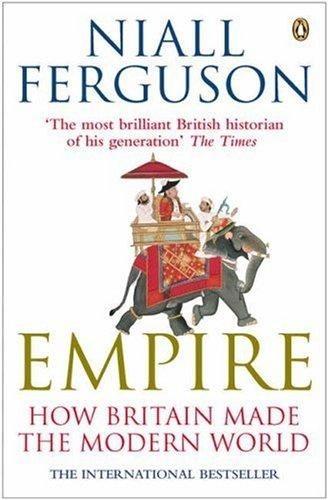
Empire: How Britain Made the Modern World
by
Niall Ferguson
Published 1 Jan 2002
Is this so very different from the early British Empire of monopoly trading companies and missionaries? Nor is it any coincidence that a map showing the principal US military bases around the world looks remarkably like a map of Royal Navy coaling stations a hundred years ago. Even recent American foreign policy recalls the gunboat diplomacy of the British Empire in its Victorian heyday, when a little trouble on the periphery could be dealt with by a short, sharp ‘surgical strike’. The only difference is that today’s gunboats fly. Net foreign investment as a percentage of Gross National Product, UK 1875–1913 compared with US 1961–1999 Yet in three respects the process of ‘Anglobalization’ is fundamentally different today.

How Markets Fail: The Logic of Economic Calamities
by
John Cassidy
Published 10 Nov 2009
Among the examples he cited were the crimes induced by the sale of alcoholic drinks; the damage done to road surfaces by private motor vehicles; the harm done to unborn babies caused by the practice of pregnant women working in factories; and the casualties suffered in military campaigns designed to protect a country’s foreign investments—at its height, the British Empire carried out many such exercises in “gunboat diplomacy.” By invoking these sorts of problems, Pigou was able to justify a whole range of government policies, such as temperance laws, zoning laws, progressive taxation, slum clearance, and state-financed maternity leaves. Almost a century after the publication of The Economics of Welfare, the clarity and ambition of Pigou’s vision remains striking.
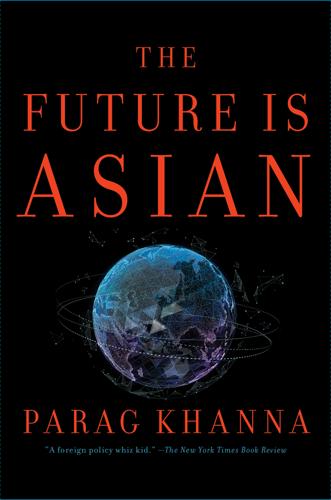
The Future Is Asian
by
Parag Khanna
Published 5 Feb 2019
China can also convert debt into greater equity in local enterprises and new investments in other sectors such as banking and telecoms. These multifaceted financial and commercial ties provide ample leverage for China’s escalated military presence. Beyond Djibouti, China has negotiated with Mozambique, Angola, and Nigeria for upgraded naval access. It is far too soon, however, to project a path toward Chinese imperial gunboat diplomacy in Africa. China did not set out in the 1990s to colonize the planet. Rather, it grew so quickly that it found itself becoming the world’s largest importer practically overnight. Even as it seeks to secure the resource flows on which it depends, China’s primary objective is to diminish its dependence on unstable and far-off areas such as Africa.
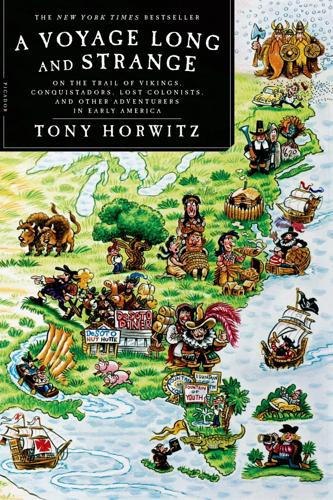
A Voyage Long and Strange: On the Trail of Vikings, Conquistadors, Lost Colonists, and Other Adventurers in Early America
by
Tony Horwitz
Published 1 Jan 2008
“The Indians, thinking us near famished,” Smith wrote, offered only “small handfulls of beanes or wheat for a hatchet or a piece of copper.” To avoid seeming desperate—which he was—Smith scorned the offer and anchored nearby. The next day he “let fly his muskets and ran his boat on shore,” then marched on the village. Natives quickly offered venison and corn, at a favorable rate of exchange. Smith’s gunboat diplomacy violated orders from the Virginia Company in London, which commanded settlers to “have great care not to offend the Naturals.” But Smith “loved actions more than wordes,” he wrote, and valued firsthand experience over the opinions of “tender educats” 3,700 miles away. “I know no reason but to beleeve my own eies, before any mans imagination.”
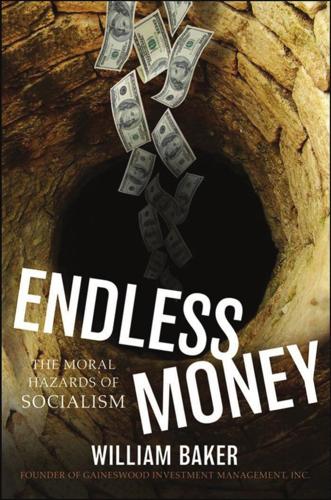
Endless Money: The Moral Hazards of Socialism
by
William Baker
and
Addison Wiggin
Published 2 Nov 2009
His predecessor, Charles Conant, had been paid handsomely in deals, such as when he obtained 50 percent of the total seigniorage of displacing the Philippine’s silver specie system in favor of dollar-backed paper money for his banker, J.P. Morgan, in 1903-1905. Kemmerer’s controlled loans did not rely upon gunboat diplomacy as those of the Conant era had, but they involved the insertion of a U.S. advisor to control tariff receipts. It may be argued that his success mostly stemmed from tapping into the surplus of capital being printed by the banking system during the 1920s. He advised for the Dawes Plan, which installed the 32-year-old Seymour Parker Gilbert to watch over Germany as its “agent general for reparations payment.”
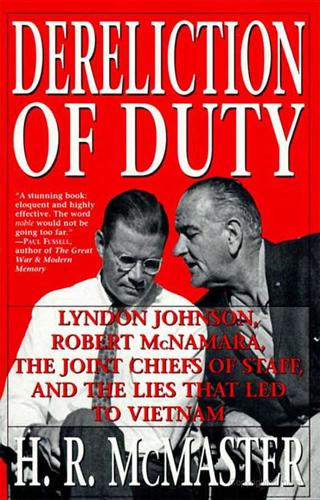
Dereliction of Duty: Johnson, McNamara, the Joint Chiefs of Staff, and the Lies That Led to Vietnam
by
H. R. McMaster
Published 7 May 1998
Marines into the capital, Santo Domingo, for the “protection of U.S. citizens.” Whatever the initial justification, the operation grew rapidly in scale, involving more than twenty thousand troops, in order to prevent a Communist takeover that would result in another “Cuba” in the Caribbean. Although he was aware that the intervention would expose him to charges of gunboat diplomacy, Johnson thought that the public and congressional criticism would be “nothing compared to what I’d be called if the Dominican Republic went down the drain.”29Faced with growing congressional criticism and the prospect of Vietnam protests and debates, the president sought to defuse opposition.

Horizons: The Global Origins of Modern Science
by
James Poskett
Published 22 Mar 2022
This was largely in response to the threat of European and American imperialism. In 1853, the United States Navy blockaded Edo Bay, forcing the Tokugawa shogunate to open up to American trade, whilst in 1863 the British Royal Navy bombarded the coast of Satsuma following the killing of a local English merchant. Worried about this kind of gunboat diplomacy, the Japanese government established a number of new scientific and military institutions, including the Nagasaki Naval Academy in 1855, where naval officers were taught engineering and physics. Shortly after this, steamships were introduced into the Japanese Navy for the first time. Government investment in modern science and technology then accelerated in the years following the Meiji Restoration of 1868.
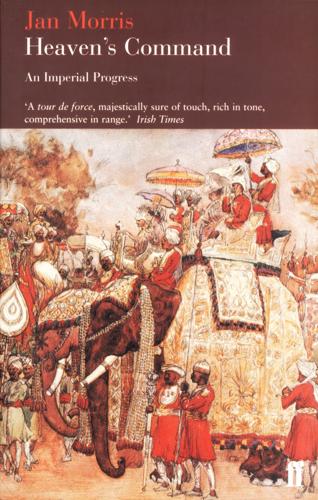
Heaven's Command (Pax Britannica)
by
Jan Morris
Published 22 Dec 2010
It progressed in a welter of argument, admiral against admiral, newspaper critics against naval spokesman, and if its professional ideas changed slowly, its gnarled, stubborn and ornate style was more resistant still. Like the Army, it became more and more an imperial force. It was increasingly concerned with the protection of the imperial sea-routes, the suppression of subversion, showing the flag and overawing the natives. Much of its energy was invested in gunboat diplomacy, that ubiquitous instrument of imperial prestige, which required the dispersal of innumerable small vessels in every corner of the world. In 1875, for instance, the Royal Navy had 16 ships on the North American and West Indies station, five on the South American, nine on the South African, 11 on the East Indies, 10 on the Pacific, 11 on the Australian and 20 on the China station.
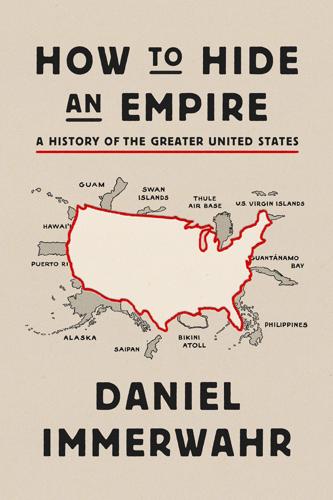
How to Hide an Empire: A History of the Greater United States
by
Daniel Immerwahr
Published 19 Feb 2019
U.S. interests would be protected, and the Dominican Republic would remain independent. The ploy was used repeatedly, in country after country around the Caribbean. The United States seized the levers of finance and trade but left sovereignty formally intact. “Dollar diplomacy” was the polite name for this, though “gunboat diplomacy” was the more accurate euphemism. To ensure political and financial “stability,” U.S. troops entered Cuba (four times), Nicaragua (three times), Honduras (seven times), the Dominican Republic (four times), Guatemala, Panama (six times), Costa Rica, Mexico (three times), and Haiti (twice) between 1903 and 1934.
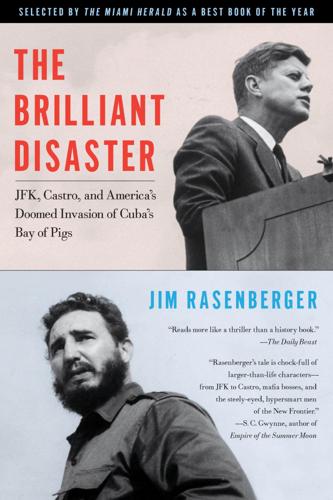
The Brilliant Disaster: JFK, Castro, and America's Doomed Invasion of Cuba's Bay of Pigs
by
Jim Rasenberger
Published 4 Apr 2011
Kennedy had entered office determined to strengthen economic ties between the United States and its neighbors to the south, primarily by means of a reform and aid program called the Alliance for Progress (Alianza para el Progreso). He had unveiled the Alliance in March, promising the start of a new and happier chapter in U.S.–Latin American relations. An invasion could instantly spoil the Alliance; if Latin Americans suspected a U.S. hand behind the invasion, many would denounce it as a return to the despised gunboat diplomacy of earlier eras. “We might be confronted by serious uprisings all over Latin America if U.S. forces were to go in,” worried Secretary Rusk. But if invading was risky, so was not invading. Yes, backing an enterprise to overthrow Castro would make Kennedy look like an aggressor and possibly stir up a world of trouble.
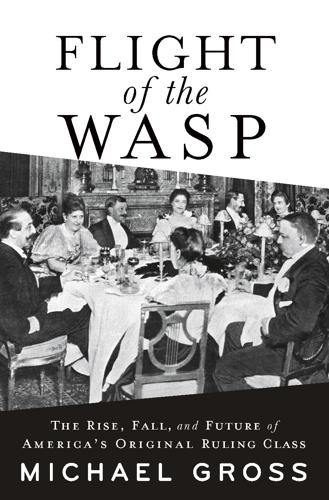
Flight of the WASP
by
Michael Gross
A shrewd social climber, Belmont became a naturalized American, served as consul general to Austria from 1844 to 1850, and in 1849 converted to the Episcopal Church when he married Caroline Perry, daughter of the naval commander Matthew Perry, hero of multiple wars, who would shortly gain more renown as a practitioner of gunboat diplomacy when he opened Japan to American commerce. Conversion to the Episcopal faith was considered a sure step toward acceptance on a higher social plane. According to the 1860 census, 32 percent of Americans who belonged to religious congregations worshipped as Methodist then, 19 percent as Baptists, and only 14 percent as members of mainstream Protestant churches.
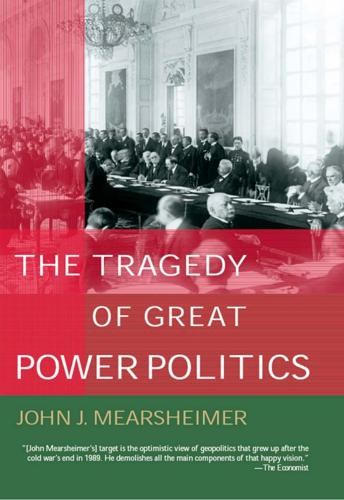
The Tragedy of Great Power Politics
by
John J. Mearsheimer
Published 1 Jan 2001
JAPAN (1868–1945) Before 1853, Japan had little contact with the outside world, especially the United States and the European great powers. More than two centuries of self-imposed isolation had left Japan with a feudal political system and an economy that was not in the same league as those of the leading industrial states of the day. The great powers used “gunboat diplomacy” to “open up” Japan in the 1850s by forcing it to accept a series of unequal commercial treaties. At the same time, the great powers were striving to gain control over territory on the Asian continent. Japan was powerless to affect these developments; it was at the mercy of the great powers.

The Rough Guide to Korea
by
Rough Guides
Published 24 Sep 2018
Much of the activity occurred on and around the island of Ganghwado, just west of Seoul: the French occupied the isle but failed with advances on the mainland in 1866, their battle fought partly as retaliation for the murder of several of their missionaries in Korea. Five years later, and in the same location, the Americans also attempted to prise the country open to trade; though they failed, the third bout of gunboat diplomacy – this time by the Japanese in 1876 – resulted in the Treaty of Ganghwa, which dragged Korea into the global marketplace on unfair terms. From this point to the present day, Korea would be a ship largely steered along by foreign powers. Through means both political and economic, the Japanese underwent a gradual strengthening of their position in Korea.

Liberalism at Large: The World According to the Economist
by
Alex Zevin
Published 12 Nov 2019
This was a struggle of ‘overriding importance’ for the entire East Asian region – and for Washington, the paper hinted, whose ‘modest blessing’ Britain needed to stay the course in this ‘testing point’ for ‘free nations’.96 Iran was another such testing point. Here the nationalization of the Anglo-Persian oil fields at Abadan – then the largest oil refinery in the world and the single biggest British overseas investment – took the Economist by surprise. From March 1951, it counselled a version of gunboat diplomacy straight out of the nineteenth-century paper. ‘One or two naval vessels’ sent to manoeuvre in the Gulf should suffice, since ‘Persians like all Moslem peoples respect power and strength’. But RAF squadrons in Iraq should be reinforced just in case, for ‘the nationalist virus spreads amazingly quickly in the Middle East’.97 The elected prime minister of Iran, a genteel Qajar-descended jurist educated in France and Switzerland, was treated to hysterics.
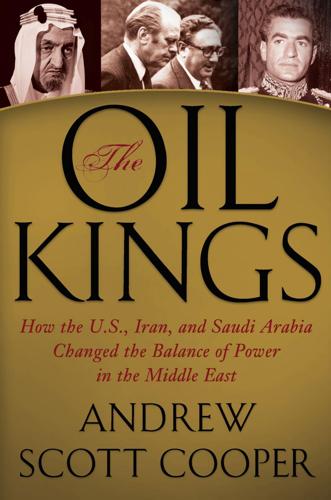
The Oil Kings: How the U.S., Iran, and Saudi Arabia Changed the Balance of Power in the Middle East
by
Andrew Scott Cooper
Published 8 Aug 2011
The problem for Washington was that Great Britain had made a similar pledge to pull out of the Persian Gulf by the end of 1971, leaving the Asian continent’s western flank vulnerable to seizure or subversion from radicals and mischief makers aligned with the Soviet Union. The cash-strapped British were ending more than a century of gunboat diplomacy in an area that held two thirds of the world’s known petroleum reserves. Oil from the Persian Gulf accounted for one third of the petroleum used by the free world and 89 percent of the oil used by the U.S. military in Southeast Asia. The region’s booming oil industry generated $1.5 billion in revenue for the United States economy and employed twelve thousand American expatriates.
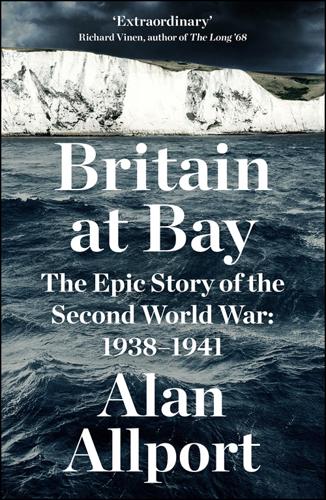
Britain at Bay: The Epic Story of the Second World War: 1938-1941
by
Alan Allport
Published 2 Sep 2020
Morton.4 And the Shire’s diminutive inhabitants, hobbits – ‘charming, absurd, helpless hobbits’, as Gandalf the Wizard calls them – corresponded very neatly with the gentle and unassuming self-image that the English people had adopted for themselves in the years after the First World War.5 They had not always seen themselves as such meek creatures. The brash, bumptious ogre John Bull, the personification of English virtues who had symbolised the age of High Britannic Imperialism and gunboat diplomacy, was no hobbit. But, after the slaughter of the Western Front, the English were weary of John Bull’s aggressive theatricality. Now they saw themselves exemplified by the ‘Little Man’ – ‘small, kindly, bewildered, modest, obstinate, and very loveable’, as the writer and MP Harold Nicolson described him, and most famously depicted by the cartoonist Sidney Strube, in the Daily Express, with bowler hat, umbrella, bow tie, high collar, pince-nez glasses and bushy white moustache.6 Strube’s Little Man offered an Englishman for a new, milder, altogether more quotidian age.

Reaganland: America's Right Turn 1976-1980
by
Rick Perlstein
Published 17 Aug 2020
At the march’s terminus, the ultramodern triumphal arch the shah had erected to commemorate the 2,500th anniversary of the nation he no longer ruled, marshals distributed handbills announcing the illegitimacy of the Bakhtiar government—which President Carter promptly recognized. With America’s blessing, Bakhtiar closed Tehran’s airport and guarded it with tanks to block the Ayatollah’s return. But Carter appeared to be wavering. Early in January, he had sent a carrier group to the Persian Gulf—then pulled it back. (“The first example of no-boat gunboat diplomacy,” William Safire wrote.) “We have no intention, neither ability nor desire, to interfere in the internal affairs of Iran,” he told the press the day after the shah’s retreat. “We’ve tried this once in Vietnam. It didn’t work well, as you know.” Simultaneously, he did interfere in the internal affairs of Iran, shipping two hundred thousand barrels of fuel to the army, maneuvering to keep the shah out of the United States and Khomeini out of Iran.
…
“a good PR man” Carter, White House Diary, 261; Jean-Charles Brotons, U.S. Officials and the Fall of the Shah (Lanham, MD: Lexington Books), 69. Arba’een arrived “A Million Marchers Rally for Khomeini in Teheran Streets,” NYT, January 20, 1979. closed Tehran’s airport Reuters, January 24, 1979. “no-boat gunboat diplomacy” William Safire column, January 4, 1979. “We have no intention” “The President’s News Conference,” January 17, 1979, APP. barrels of fuel “The President’s News Conference,” January 26, 1979. returned on February 1 UPI, February 1, 1979. “minimum of violence” Carter, White House Diary, 287.
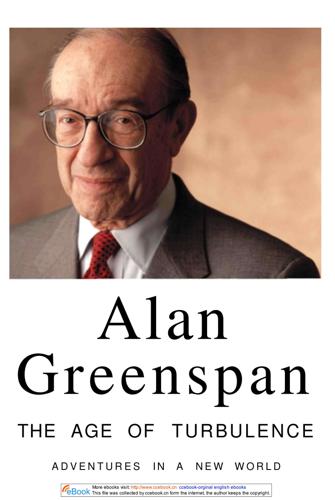
The Age of Turbulence: Adventures in a New World (Hardback) - Common
by
Alan Greenspan
Published 14 Jun 2007
The United States is mistakenly perceived to this day to be a prime cause of economic misery south of its border. For decades, Latin politicians have railed against American corporate capitalism and "Yankee imperialism." Particularly nettlesome to Latins has been a century of U.S. economic and military dominance and the use of "gunboat diplomacy" to assert American property rights. President Theodore Roosevelt in 1903 went a step further, abetting a revolt that detached Panama from Colombia, after Colombia refused permission for the United States to build a canal through Panama. It is no wonder that Pancho Villa became a hero to Mexicans.

Jerusalem: The Biography
by
Simon Sebag-Montefiore
Published 27 Jan 2011
THE EVANGELISTS 1840-1855 PALMERSTON AND SHAFTESBURY: THE IMPERIALIST AND THE EVANGELIST The diplomatic policy relating to Jerusalem was the work of Lord Palmerston, the foreign secretary, but the Godly mission was the achievement of his evangelical stepson-in-law, the Earl of Shaftesbury.* Palmerston, aged fifty-five, was not a Victorian prig or evangelical but an unrepentant Regency buck known as Lord Cupid for his sexual escapades (which he jovially recorded in his diary), as Lord Pam for his jaunty vigour, and as Lord Pumicestone for his gunboat diplomacy. Indeed Shaftesbury joked that Palmerston 'didn't know Moses from Sir Sidney Smith'. His interest in the Jews was pragmatic: the French advanced their power by protecting the Catholics, the Russians by protecting the Orthodox, but there were few Protestants in Jerusalem. Palmerston wanted to diminish French and Russian influence, and saw that British power could be advanced by protecting the Jews.

A Pipeline Runs Through It: The Story of Oil From Ancient Times to the First World War
by
Keith Fisher
Published 3 Aug 2022
We could ship oil in tank steamers across the Pacific to the Chinese markets quicker and cheaper than is possible with sailing ships, as at present.40 Indeed, Standard Oil now embarked on a campaign to reverse its market decline in China by investing $20 million in new tankers and storage facilities needed for the bulk shipment and distribution of lamp oil there – as Shell and Royal Dutch had been doing for some years.41 In 1901 Standard decided to build a large refinery at Point Richmond, across the bay from San Francisco, that would bring to realization the long-cherished dream of supplying Oriental markets from the West Coast of the US.42 In 1905 Standard Oil encountered difficulty in obtaining permission to construct storage tanks at Chinkiang (Zhenjiang), but after the US Navy paid a visit the Chinese officials became more accommodating. The naval commander recorded this successful exercise of ‘gunboat diplomacy’: The unexpected appearance of our three vessels and the uncertainty as to their intentions were sufficient … and the representative of the Standard Oil Company is now free to improve his property and by so doing to enlarge the trade of this American corporation … the argumentum baculicum [sic] [appeal to force] is what [the Chinese] best appreciate, anything more considerate they look upon as weakness and correspondingly despise.43 The American colonial expansion into Guam and the Philippines, in addition to Hawaii, would eventually become the geopolitical context in which Japan, in 1941, attacked the US naval base at Pearl Harbor, bringing America into the Second World War; and, in a macabre moment of historical repetition, in 2004 a US general would refer to his country’s bloody occupation of the Philippines as a model for the establishment of American bases in Iraq.44 AN INDUSTRY IN FLUX By the turn of the twentieth century the petroleum industry had become a significant component of the modern global economy.
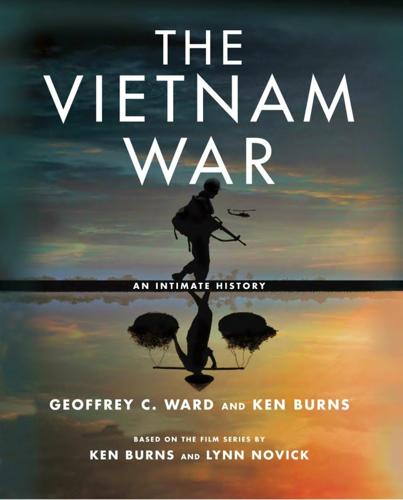
The Vietnam War: An Intimate History
by
Geoffrey C. Ward
and
Ken Burns
Published 4 Sep 2017
To justify his action, Johnson claimed that the American ambassador had called him while crouching under his desk as bullets flew through the windows, that “a band of communist conspirators” was leading the uprising, and that “some fifteen thousand innocent people were murdered and shot and their heads cut off.” None of it was true. A ceasefire soon brought an end to the fighting, but critics charged the president with indulging in gunboat diplomacy and with being willing to exaggerate and deceive to justify military action. The New York Herald Tribune expressed concern over what it called LBJ’s “credibility gap,” a phrase that would haunt him for the rest of his time in the White House. ON HIS WAY THAT SUMMER, before shipping out to Vietnam, Mogie Crocker came home for a visit.
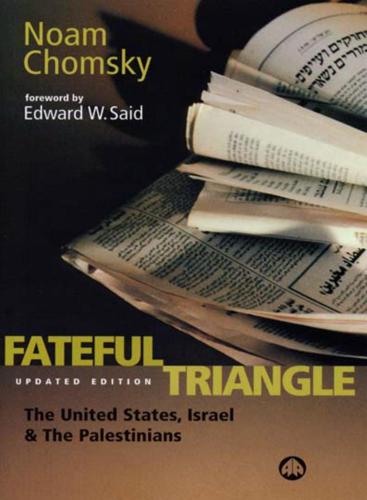
Fateful Triangle: The United States, Israel, and the Palestinians (Updated Edition) (South End Press Classics Series)
by
Noam Chomsky
Published 1 Apr 1999
Useful instruction on such matters was provided by the influential neoconservative intellectual Irving Kristol as the project of the past quarter century took shape. He pointed out that “insignificant nations, like insignificant people, can quickly experience delusions of significance,” which must be driven from their primitive minds by force: “In truth, the days of ‘gunboat diplomacy’ are never over... Gunboats are as necessary for international order as police cars are for domestic order.” The sentiments are not original, of course. Fifty years earlier, the eminent British statesman Lloyd George had praised his government for having undermined a disarmament treaty, recognizing the importance of “reserving the right to bomb niggers.”
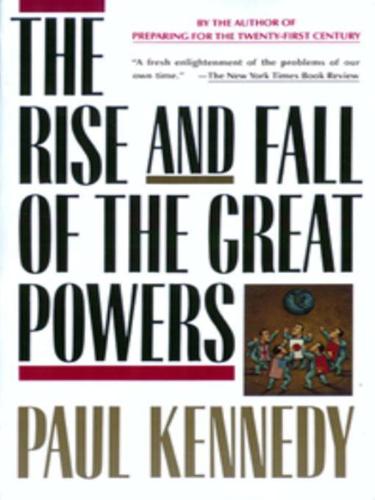
The Rise and Fall of the Great Powers: Economic Change and Military Conflict From 1500 to 2000
by
Paul Kennedy
Published 15 Jan 1989
The vast boom in spending on the war, precisely at a time when domestic expenditures upon Johnson’s “Great Society” were also leaping upward, badly affected the American economy in ways which will be examined below (pp. 434–35). Moreover, while the United States was pouring money into Vietnam, the USSR was devoting steadily larger sums to its nuclear forces—so that it achieved a rough strategic parity—and to its navy, which in these years emerged as a major force in global gunboat diplomacy; and this increasing imbalance was worsened by the American electorate’s turn against military expenditures for most of the 1970s. In 1978, “national security expenditures” were only 5 percent of GNP, lower than they had been for thirty years.171 Morale in the armed services plummeted, in consequence both of the war itself and of the postwar cuts.
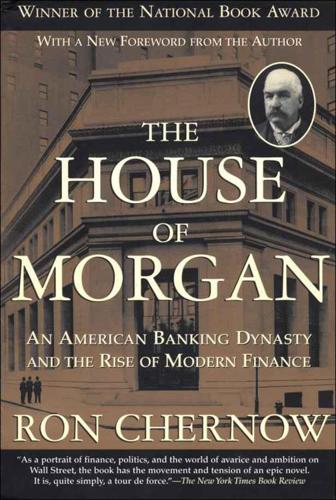
The House of Morgan: An American Banking Dynasty and the Rise of Modern Finance
by
Ron Chernow
Published 1 Jan 1990
There were more recent cases of debt repudiation as well, including China in 1949, Cuba in 1961, and North Korea in 1974. Banks could foreclose on companies but not on countries, making the latter more careless about repaying loans. And political risk was always piled atop economic risk. Another factor of comfort to the bankers was the International Monetary Fund. By the 1970s, gunboat diplomacy was passe. For reasons of foreign policy, Washington was often more eager to appease Latin American governments than bully them about loans. Bankers didn’t like meddling in foreign countries, especially now that they had branches abroad. In 1976, when Peru was nearly bankrupt, Citibank, Morgans, and other banks imposed an austerity plan in exchange for a $400-million loan.

Post Wall: Rebuilding the World After 1989
by
Kristina Spohr
Published 23 Sep 2019
The Australian prime minister, Paul Keating, warned that US commercial policies could polarise the world into competing trade blocs.[77] In South Korea too, although there was consensus of the North Korean threat and the importance of nuclear non-proliferation, Bush was met with street protests over what was perceived as heavy-handed American pressure to force Seoul to ‘fully open’ its agricultural markets. Likewise, in the days before Bush’s arrival, his Japanese hosts did not contain their anger at Bush’s blatant trade imperialism, with Japan’s leading newspaper Asahi Shimbun blaming the White House for conducting ‘gunboat diplomacy in economic areas’. Bush brushed off this criticism: ‘We’ve never said we’re totally pure. We’re working for freer and fairer trade.’ And so, he believed, should the others.[78] The crunch discussions unfolded in Japan between 7 and 10 January. Behind the scenes Japanese and American negotiators worked desperately hard to hammer out two key documents during the president’s four-day stay: the Tokyo Declaration on the Japan–US Global Partnership and the consequent Action Plan.

The Rough Guide to Brazil
by
Rough Guides
Published 22 Sep 2018
Brazil made the slave trade officially illegal in 1830, but British abolitionists were not deceived, and until the 1850s the Royal Navy maintained a squadron off Brazil, intercepting and confiscating slave ships, and occasionally entering Brazilian ports to seize slavers and burn their vessels – one of history’s more positive examples of gunboat diplomacy. In 1850 the Brazilian parliament finally passed a law enforcing the slave trade ban, and after 1851 few African slaves entered the country – but slavery itself remained legal. Ultimately it was a passionate campaign within Brazil itself, led by the fiery lawyer Joaquim Nabuco (1849–1910), that finished slavery off.
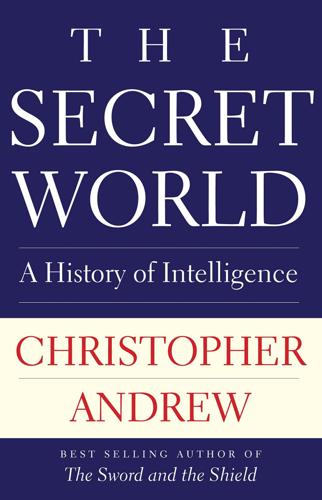
The Secret World: A History of Intelligence
by
Christopher Andrew
Published 27 Jun 2018
Alfred von Kiderlen-Wächter, the German Foreign Minister, concluded that a dramatic gesture was necessary to secure compensation for Germany for the expansion of the French Empire. ‘It is’, he claimed, ‘necessary to thump the table, but the only object is to make the French negotiate.’ Kiderlen’s method of thumping the table was a classic example of gunboat diplomacy. On 1 July the German gunboat SMS Panther appeared at the Moroccan port of Agadir, allegedly to protect German civilians whose lives were supposedly threatened by a rebellion in Morocco. However, as A. J. P. Taylor noted, the nearest German was at the more northerly port of Mogador. He was therefore ordered to proceed at once to Agadir, in order that his life might appear to be in danger, but it was three days after his arrival at Agadir before the crew of the Panther noticed him standing on the beach and rescued him.11 Despite its farcical beginnings, however, the Agadir crisis ‘was allowed to escalate to the point where it seemed that a western-European war was imminent’.12 The French government’s handling of the crisis provides a curious parallel with the First Moroccan Crisis of 1905.
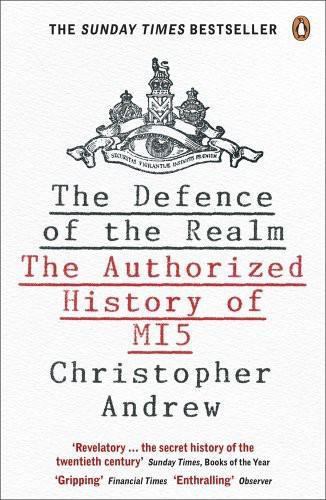
The Defence of the Realm
by
Christopher Andrew
Published 2 Aug 2010
Placing the onus of proof on the accused was not entirely without legal precedent; it applied in a roughly similar way to the crime of ‘loitering with intent’ under the 1871 Prevention of Crimes Act.57 But the Attorney General, Sir Rufus Isaacs, was stretching a point when he assured the Commons on 18 August that, by comparison with the 1889 Official Secrets Act, ‘there is nothing novel in the principle of the Bill which the House is being asked to accept now.’ The Liberal MP Sir Alpheus Morton immediately retorted: ‘It upsets Magna Carta altogether.’ None the less Colonel ‘Jack’ Seely, the Under Secretary for War, was able to exploit the sense of urgency created by the fear in the summer of 1911 that a crisis caused by German gunboat diplomacy (the sending of the SMS Panther to the Moroccan port of Agadir) might erupt into European war. He succeeded in pushing the Bill through all its Commons stages in the scarcely precedented space of less than an hour.58 Kell noted in his next progress report that the new Act ‘greatly facilitated’ his work.59 The first German agent prosecuted after the passing of the 1911 Official Secrets Act was Heinrich Grosse, who was successfully convicted at the Winchester Assizes in February 1912.